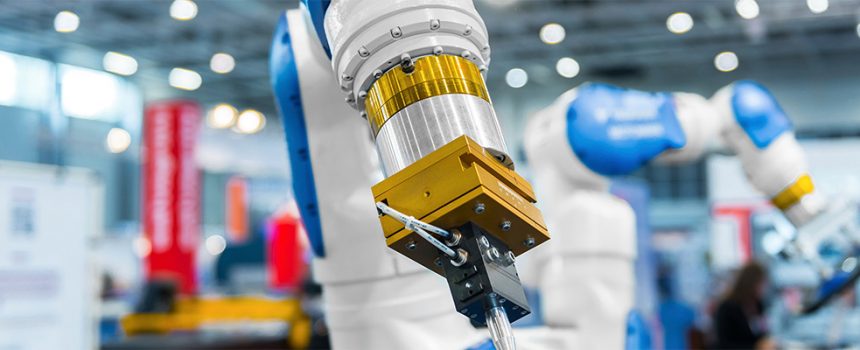Continuing our series on artificial intelligence and sales, let’s take a look at Industry 4.0, known more commonly as the 4th Industrial Revolution. It has a profound effect on sales–and if done right, for the best.
Defining Industry 4.0
Before we delve into this heavy topic, what do we mean by Industry 4.0? As I said above, it’s the 4th Industrial Revolution, unfolding right now. It brings internet-enabled smart devices that seamlessly interface with humans and each other. It provides for data analysis (which we covered in the last article in this series) and virtual models that make it possible to evaluate and solve production issues on the fly. It’s about state-of-the-art services being delivered to companies and customers through the cloud. Eventually it will even mean factory modules that are enabled to replace or expand themselves.
In short, Industry 4.0 describes an industrial world virtually interconnected in real time.
Path Through History
The first Industrial Revolution began toward the end of the 18th century, and was marked by the invention of the steam engine. With it began the replacement of human workers by mechanical production units in factories, the transition of hand to mechanical manufacturing. With technology, products could be manufactured more rapidly and in greater quantity than at any time in history. Daily life was influenced throughout participating countries, primarily in Great Britain, where the revolution began.
The latter third of the 19th century marked the onset of the 2nd Industrial Revolution, also known as the Technological Revolution. It was facilitated by access to electrical power and the introduction of the assembly-line concept. Assembly lines divided production steps into individual processes, mandated that employees become more specialized, and significantly reduced production costs. This revolution brought about enormous expansion of rail and telegraph lines, which meant unprecedented movement of people and ideas. This led to a new wave of globalization.
By the early 1970s, electronics and information technologies were being dovetailed into manufacturing processes, making it possible for many manual production steps to be automated. At the same time, offices and businesses became computerized, and computer networks started coming into being. This is said to be the 3rd Industrial Revolution.
And now, in the dawn of the 21st century, we are at the cusp of the 4th Industrial Revolution – Industry 4.0. As we move forward, Industry 4.0 will be enabled more and more by 2 factors we’ve already been covering in this series: artificial intelligence and big data.
What of Salespeople?
A common fear of sweeping advances such as Industry 4.0 is that sales will be fully automated, and human salespeople will be replaced. Actually, the opposite is true: Despite this intense trend in smart technology, interconnection, and highly evolved digital solutions, buyers and customers are crying out for the personal touch as never before.
Evidence of this demand is shown in the trend in 1-to-1 marketing, which emphasizes personal interactions with customers. It is also shown in the B2B sales trend of specific issues being addressed on a company-by-company basis, instead of that of a general industry. It is clear that the demand for human interaction–that is, the human salesperson–is not only very much alive, but will continue to increase as Industry 4.0 becomes more of a reality. In fact, many believe that the more automated industry–and, indeed, business–becomes, the more the personal touch is required.
Part of the reason for required personalization is the complexity of B2B products and services. They often require an expert to help guide prospects and customers along. The role of a B2B salesperson has changed, from someone simply pitching a product or service, to an expert who assists buyers in every way possible.
To this change we must add that the many innovations that make Industry 4.0 possible are constantly increasing (doubling or tripling) the speed at which people conduct commerce. Hence a salesperson must be immediately and constantly armed with the data they need to accurately sell to specific prospects and customers–a place at which artificial intelligence and big data enters in.
The Role of CRM
As this future world unfolds, visualization is becoming increasingly important. Smart machines interact with each other—but as humans interact with technology, the only way they can do so efficiently is through highly visual interfaces which, in the last 5 years, have become increasingly commonplace.
Pipeliner CRM was ahead of the curve in this regard, and has evolved the most visual CRM in the industry. Sales managers and salespeople are already applauding the fact that Pipeliner provides them with a clear, immediate visual view of their sales statuses and priorities, allowing them to focus on crucial tasks to move sales through to deals won—at a speed that allows them to keep up.
As Industry 4.0 becomes the norm, Pipeliner will be there—to visually guide and assist salespeople to sell as never before. Get your free trial of Pipeliner CRM now.




















Comments